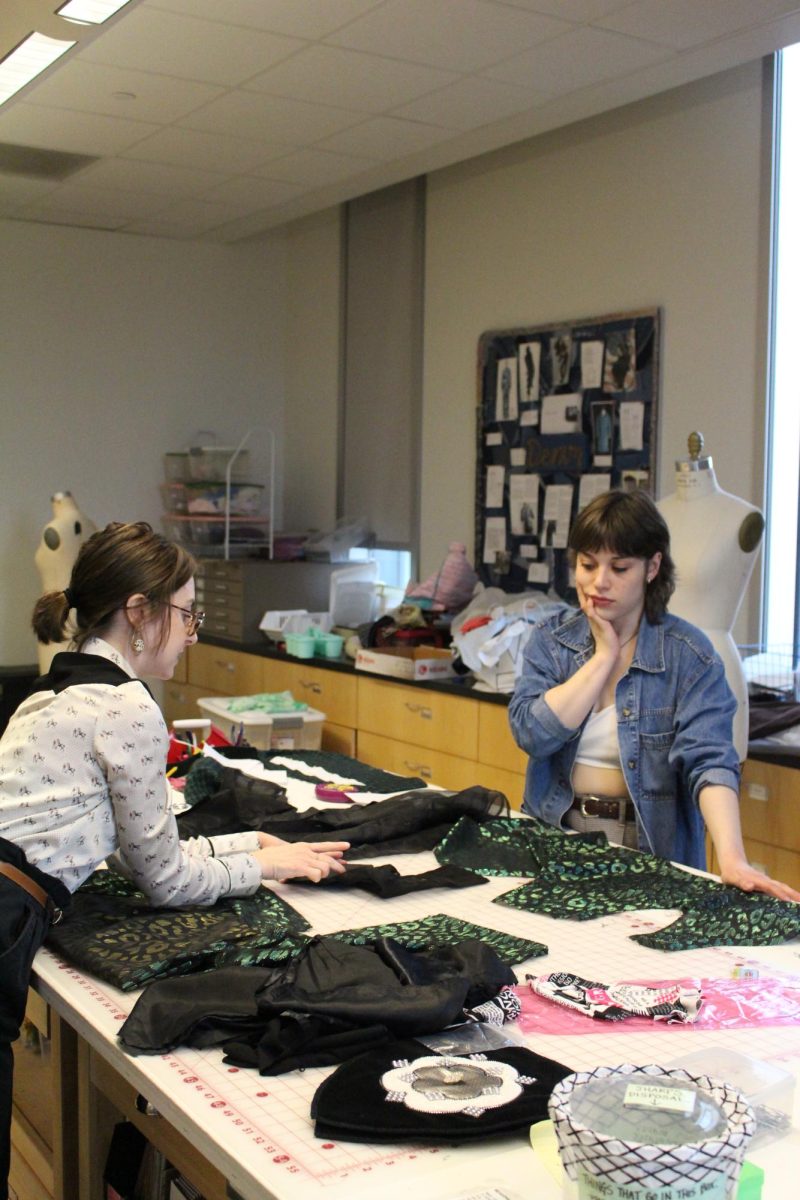Community, Leadership, Experimentation, Diversity, & Education
Pittsburgh Arts, Regional Theatre, New Work, Producing, Copyright, Labor Unions,
New Products, Coping Skills, J-O-Bs...
Theatre industry news, University & School of Drama Announcements, plus occasional course support for
Carnegie Mellon School of Drama Faculty, Staff, Students, and Alumni.
CMU School of Drama
Subscribe to:
Post Comments (Atom)

4 comments:
I mentioned in other new quiz comments this week that I really want to declare into the Cross and design concentration. I also am an additional major in environmental and sustainability studies. My goal is to integrate more sustainable practices into causing design and theater in general so this article was right up my alley. I think it’s important that they touch upon a lot of different ways to be sustainable within the costume shop. One way is by mostly getting costume pieces donated or Thrifted, which cuts down the consumption of new clothing items. I also think the idea of selling costumes that they won’t use anymore around Halloween times is really smart and a good way to bring money back into the custom shop. It is also important to consider what materials clothing is made of, and what chemicals could possibly be used to treat them.I know that Carnegie does implement some of these things in the costume shop, but I wonder what of these practices we can implement.
I think sustainability is a huge issue in 2024. As a student in the theater industry right now I see the loads and loads of waste we throw out from each show after closing night. we strike the show and throw out a full dumpster of wood fabric nails and other various objects we used to build the set. and although the shows are great that we've created we must ask ourselves what's next? how much of an impact did that show have based on the waste that we're putting out into the earth, was it worth it? is there a point where we put the environment over entertainment? a one-time show never to be seen again is what is at stake. But of course, there's no need to be so extreme. No need to stop all of theater, yet it can become more sustainable. after reading this article it was enlightening to hear how some theater companies are already working on this, especially in the costumes industry. reusing and upcycling old materials is something that we should be doing everywhere.
I always try to remind myself to do better when it comes to acting sustainably. This year I purchased a thrifted sewing machine for me to fix my thrifted clothes with thrifted thread. I'm a big believer in finding things secondhand if possible, or making your own clothes and products. I think that the fast fashion industry is ravaging the natural resources of our planet, and apps, especially those like temu or amazon, that make it so incredibly easy to get cheap and cheaply made clothes, are really harming both our environment, and the way we should be thinking about clothes. We should own things to last, not as a subscription service to simply give all our money to. We should only have to buy something a single time and be able to use it for the rest of our lives. I think that thrifting can extend the lives of clothes and cut the environmental impact of them in half, and I'm glad to see more costume shops adopting sustainable practices.
More sustainable anything is always good, especially theatre which as we all know is one of the least sustainable things that we currently do. And while I’d say costumes aren’t the worst of it by any means they definitely aren’t without fault. So it’s really good to see a company like that taking the steps necessary to become at least a little bit more sustainable. Also as someone who personally loves thrifting the section that talks about the 80 hands have touched every garment is true, when you buy clothes even brand new they’ve been touched by often even more than that as they’ve been sitting there. Even when buying stuff online there are still a good number of people that have touched it and every other article of clothing at different steps within the process. Everything should be washed before wearing as soon as you get home, no exceptions.
Post a Comment